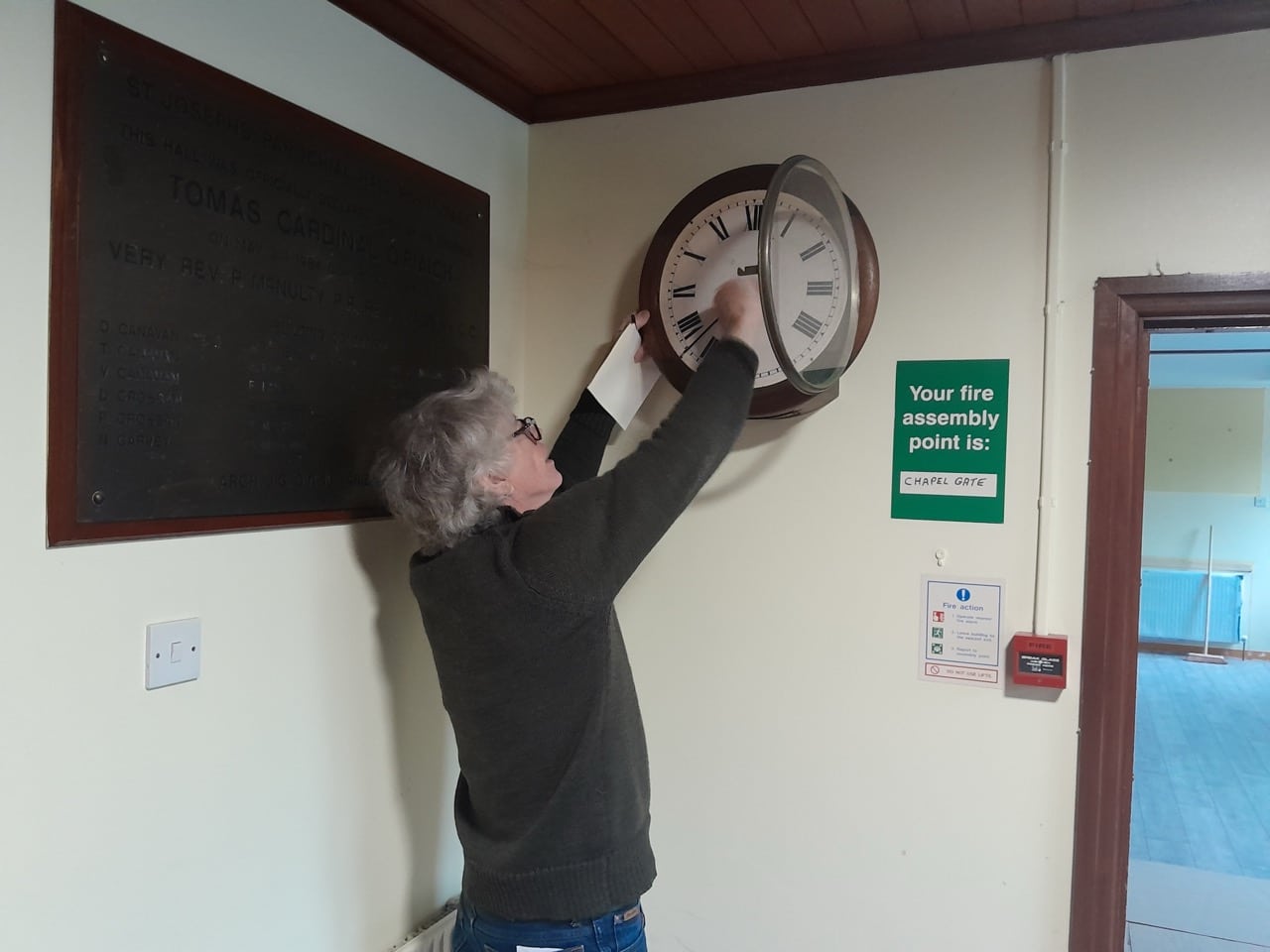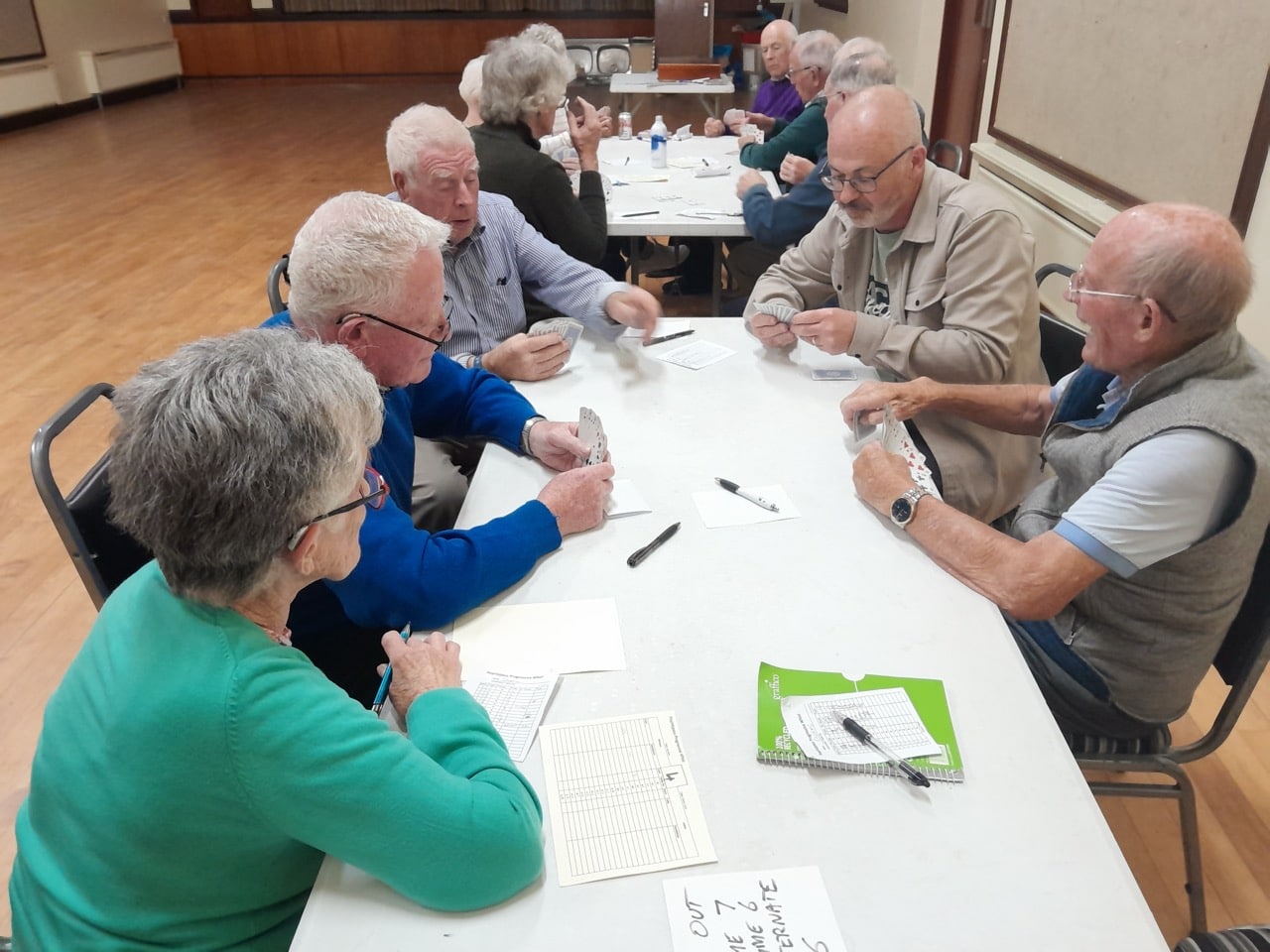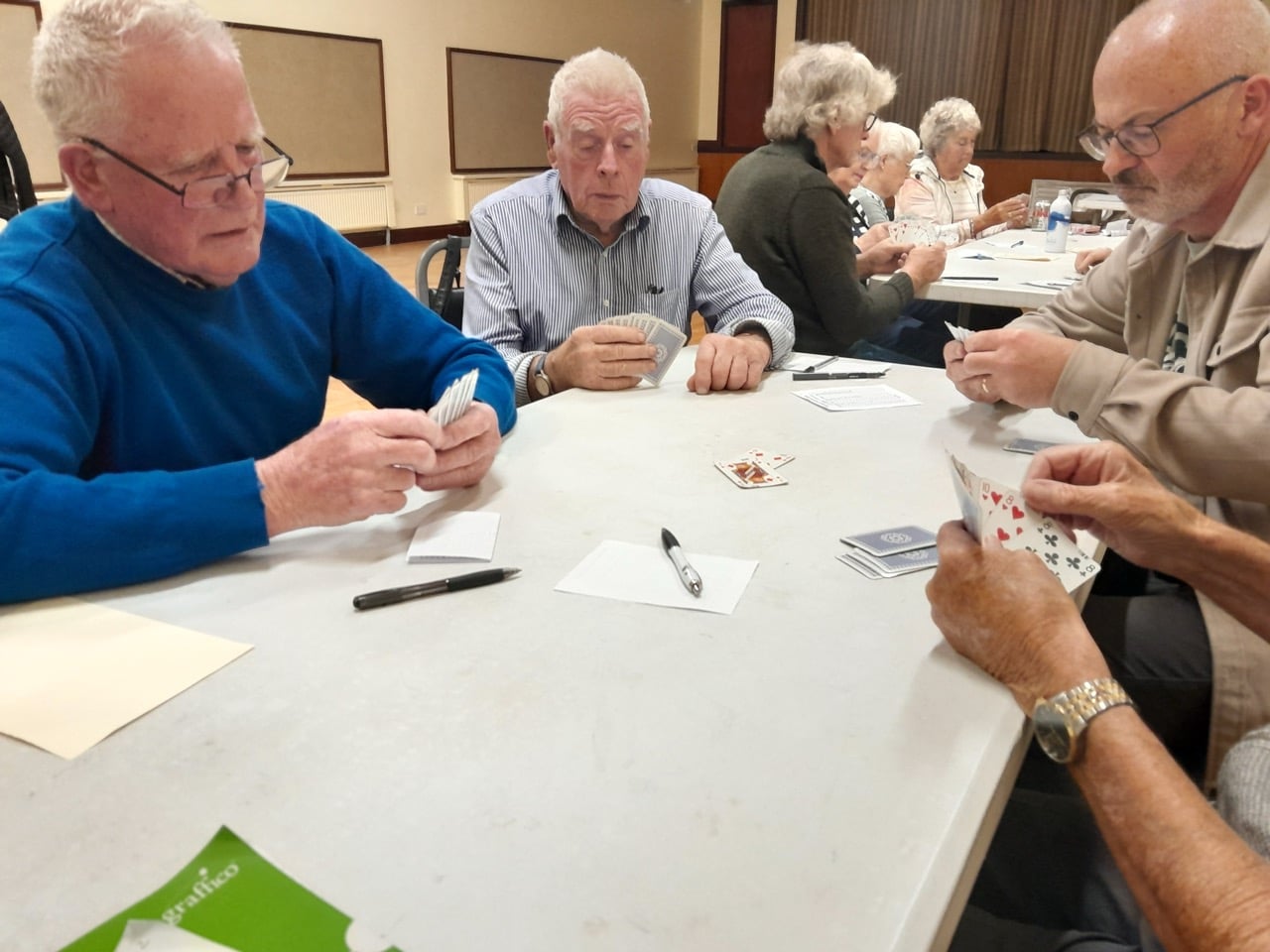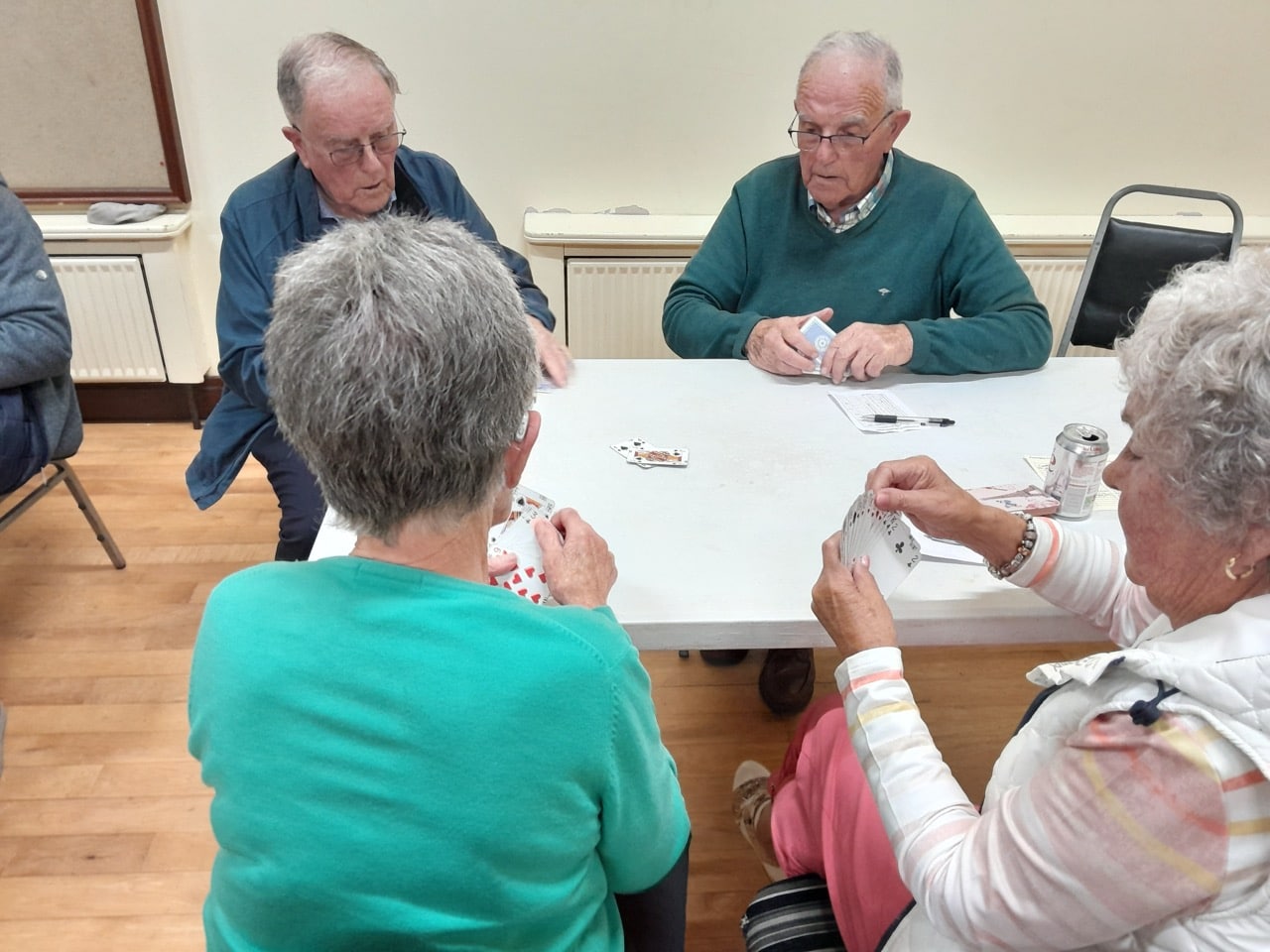
Time stands still as Oliver O’Hare winds up the old clock hanging above the entrance to St. Joseph’s Hall in Poyntzpass.
But for the weekly Whist Drive which he is preparing for, time could be running out.
In the 18th and 19th centuries, Whist was one of the most popular card games in Europe. By the 20th century however, its popularity had significantly declined.
Yet while it was forgotten in the cities where it once thrived, in villages and rural communities across Northern Ireland it gained a new lease of life.
The game itself is simple. Players sit in groups of four. They are divided into two teams, with partners sitting across from each other. Each game consists of thirteen rounds, with players taking it in turns to play a card. The card with the highest value wins the round; this is known as ‘taking a trick’. At the end of the game, the partners with the highest number of ‘tricks’ win. At a Whist Drive, after every game, the winning partners move to the next table.
The 1960s and 1970s were the heyday of Whist in Northern Ireland.

“There would’ve maybe been (a Whist Drive) Tuesday, Thursday, Friday,” according to Marie McGuinness “and Sunday night was a big night as well. It was your social night out.”
And with large crowds, came high stakes.
“It used to be that the top score won £100, which was big money.”
Today however, Poyntzpass hosts one of the few remaining weekly Whist Drives in Northern Ireland.
“There used to be twenty tables here every week,” recalls Oliver O’Hare. But with the average age of the participants being seventy-five, numbers are dwindling fast.
Yet, while the numbers may have dropped, the excitement has not. Up to twenty people attend the Poyntzpass Whist Drive every Friday evening.
And while any of them could play Whist online, they all choose to come to Poyntzpass to play in person.
“They travel from Lurgan, Banbridge, Dromore…and Newry,” according to Oliver who says “it’s a social thing…you’re pitting your wits against a human being who you’ve known for forty years.”

For almost all involved, Whist was a game they began playing in their youth.
“From when we were children we played cards,” says Marie McGuinness, “and if there was a Whist anywhere you went to it.”
Yet according to Sheena Scallion, today “the younger people aren’t interested”.
“There’s a lot of other competition” for people’s attention according to Francis Doonan, “they’d rather be on their iPhone’s…I don’t know when I saw a young person last at it (the Whist Drive). And if you do see them once, you hardly ever see them a second time.”
Yet while the long-term future of the Poyntzpass Whist Drive may be in doubt, in the short-term it is going nowhere.
“It’s a bit of craic,” says Oliver, it “keeps the old grey cells going”.






